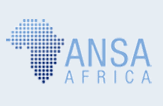| ANSA-Africa Full Circle Newsletter: July 2010 |
|
|
| Subscribe to the newsletter |
|
The latest edition of Full Circle, ANSA-Africa's newsletter, examines an important topic: the ability of information and communication technology to empower civil society and force governments to be accountable.
Big Brother is watching ...and being watched
Citizens of many African countries have become increasingly frustrated with the inability of their governments to deliver services. Mechanisms of accountability are weak, and the response to calls for action are muted as the people’s trust in government dwindles.
But Information and Communication Technology (ICT) is starting to change the way in which citizens and governments interact. Governments have started making all sorts of information available to citizens. An example of this is the US Government's www.recovery.gov website where information about government spending, waste, fraud and abuse can be tracked.
Governments also have the ability to monitor all communication on the internet and on mobile phones. Big Brother is watching, but he too is now being scrutinised. By having wider access to information and a space for broader discussions among people, citizens are empowered. They can use the very same tools to extract more information and accountability from those in power (both political and economic).
Accountability checks the power of political leaders and encourages people to take active part in society, making sure that governments are doing what they are supposed to. For a democracy to function well, there must be a sense of accountability by politicians as well as some sort of participation by citizens.
But how exactly do people participate in a democracy?
The most obvious way, of course, is by voting. But that only happens once every four or five years. What about the rest of the time? Being a ‘voter’ is one thing, but being a ‘citizen’ is entirely another. The first assumes that building a democracy is the government’s job; being a citizen involves active participation at all times. If we don’t like the antics of governing parties, the opposition, or anyone else in power, we need to speak up. Social media offers opportunities to make your voice heard on public platforms. It is powerful because the content is created by citizens with their opinions, their ideas and observations.
To participate in the conversation, you don’t need to know HTML or technical jargon or have broadband internet access. All you need is a cellphone, the knowledge of where to share your ideas, and the will to connect with others.
Transparency
Civic societies too are realising that to be most effective in their advocacy for accountability, they need to change the way they organise. There are many online projects that promote transparency and political accountability in Latin America, Sub-Saharan Africa, Southeast Asia, South Asia, China, and central and eastern Europe. Global Voices Online (www.globalvoices.org), which aims to connect media activists, have mapped all these sites.
ICT is also shaking up the world of philanthropy. Harvard Business Review recently questioned how text messages (SMSs) could change the face of philanthropy by giving donors direct access to their communities – increasing accountability of the middle-man (usually civil society organisations) who are responsible for donor spending.
People are tweeting across Africa, particularly in South Africa and Kenya. Africans are using social media to have conversations about what they want the future to look like (or not).
There are obvious gaps in the conversation – not everyone is online. But social networking is growing and it’s mobile...
Other articles in the edition:
- Getting started
- Local government, social media and responsibility
- Knock out the stockouts
- Focus on ICT in Kenya
- Beating the competition hands down
- Interaction in Senegal
- Conecting the unconnected in Bangladesh
- Sting lies in the tale
Note: This edition of Full Circle is largely based on presentations at a recent ANSA-Africa workshop on ICT and accountability issues.The workshop report and the various presentations can be accessed here
* ANSA-Africa welcomes any feedback on the contents of this edition, alternatively comments on how you or your organisations are using ICT tools to promote accountability. Comments can be sent to:
|

